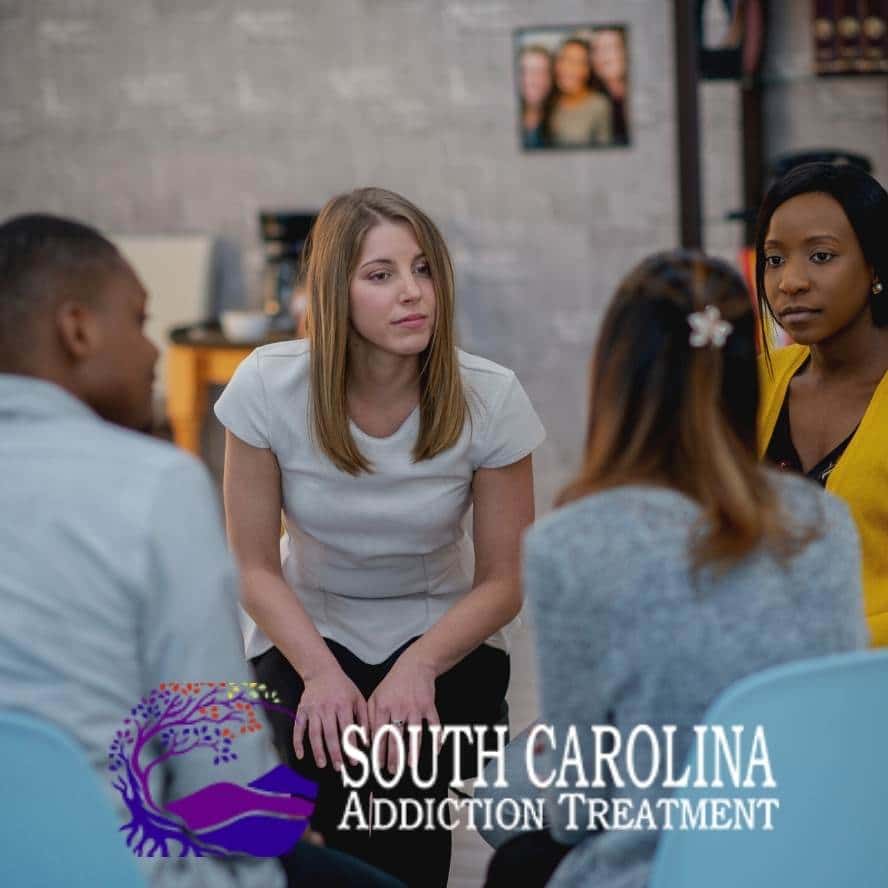What is a Day in Rehab like in South Carolina?

Medically Verified: 2/1/24
Medical Reviewer
Chief Editor

All of the information on this page has been reviewed and verified by a certified addiction professional.
Someone considering getting help with their addiction will probably want to know what to expect during a typical day in rehab. Inpatient addiction treatment centers in South Carolina often follow very similar structured schedules, but day-to-day activities can differ somewhat. All of these programs are designed with the same goal in mind: to help people recover from addiction.
A residential rehab center will have the day organized from waking up to going to bed. This minimizes the stress of having to plan out the day, leaving the person recovering from addiction to focus on getting better. This is a general outline of what a day in rehab might look like.
Early Morning
The day usually starts off early with a wake-up call from a staff member. They’ll make sure everyone gets out of bed and starts their day off right. This includes making the bed, getting cleaned up and dressed, taking medication, and having breakfast. The goal of going through these seemingly mundane tasks is to develop and reinforce keeping a healthy routine.
After getting up, it’s time to go to the clinical building where most of the day is spent. This is where meetings, group therapy, and individual therapy are held in addition to some other activities.
The first part of clinical is usually a morning check-in. Sometimes this includes a short meditation to get everyone centered before getting into the more involved tasks of the day. After the check-in, the group session usually starts.
Group Sessions
Group sessions are typically run like meetings. They are facilitated by a counselor or therapist who will present a topic for discussion. The topic is usually centered around 12-Step programs, which will become a vital part of maintaining sobriety once inpatient rehab is complete.
These groups are meant to be educational to help people understand what to expect throughout recovery. They may also explore other topics related to addiction to help people learn what things may have contributed to their addiction.
Afternoons
After a lunch break, the afternoon will start. Afternoons are usually centered around various types of therapy. These therapy sessions are meant to help people better understand their addiction as well as teach them coping mechanisms. The type of therapy session offered will depend on the day of the week and the rehab facility.
Group Therapy
Group therapy provides the opportunity for people struggling with a common issue to come together and support each other. There will usually be a topic for discussion that is centered around addiction and mental health. People will have the chance to explore the root cause of their addiction while getting feedback from peers.
This type of therapy is often very useful because it allows individuals struggling with addiction that there are others like them who have gone through similar situations. It provides a safe environment for them to learn from one another. Sharing experiences with a group is very emotionally healing and beneficial. This builds a sense of belonging and fellowship, which is an important foundation for recovery.
Individual Therapy
Individual therapy is held one-on-one and usually focuses on Cognitive Behavioral Therapy (CBT). CBT is a form of therapy centered around changing unhealthy and distorted thought patterns.[1] During CBT, a therapist will work closely with the individual to identify distorted thoughts and triggers that led to continued drug and alcohol abuse during their addiction.
Once these issues are identified, the therapist aids the person in thinking about these things from a different, healthier perspective. Individual therapy also gives people a chance to explore issues they don’t feel comfortable sharing during group therapy and get treatment tailored to their unique needs.
Family Therapy
While family therapy does not occur on a daily basis, almost all treatment centers offer this option. Addiction doesn’t just affect the person struggling with the disease, it affects those that love them as well. It gives families a chance to come together and heal as a unit. These sessions are led by a therapist who enables the family and person undergoing treatment to express thoughts and emotions in a safe environment as well as to constructively work through their issues.
Other Forms of Therapy
The majority of people suffering from addiction struggle with other issues and co-occurring disorders. This includes anger issues, eating disorders, and other mental health conditions. Addiction treatment centers in South Carolina typically offer specialized groups for people who need these services like anger management or an eating disorder group.
Holistic Treatments
When treating addiction, it is important to focus on the mind and body. Holistic treatments help to do just that. These treatments provide a chance for people to relax. Some holistic options include:
- Yoga
- Meditation
- Art or music therapy
- Reiki
- Massage
- Acupuncture
Finding a Residential Addiction Treatment in South Carolina
While most treatment centers follow the same basic model, it is still important to pick the right one. At South Carolina Addiction Treatment we offer everything you need in residential treatment for a successful recovery. Our caring staff will help you through the process and work with you closely to develop an individualized treatment plan that will address all of your concerns. To learn more about your average day in rehab or to find a rehab center near you, give us a call today.

